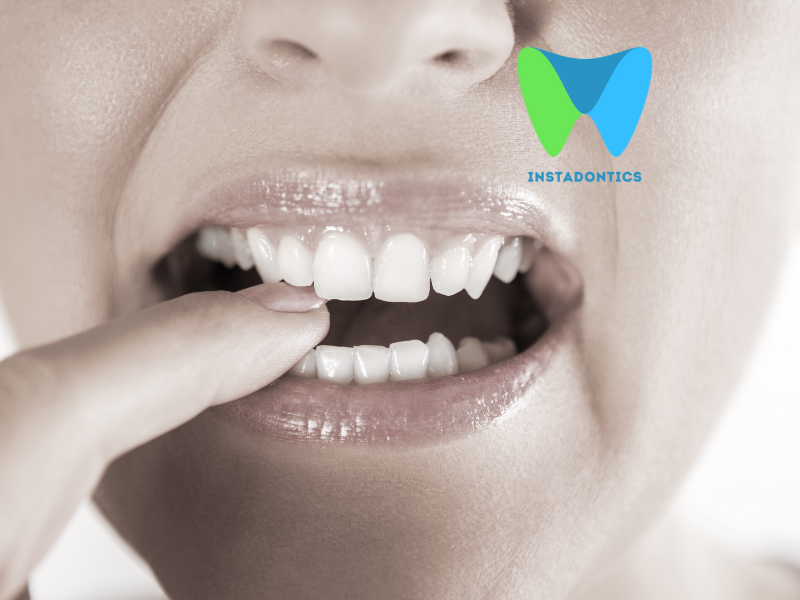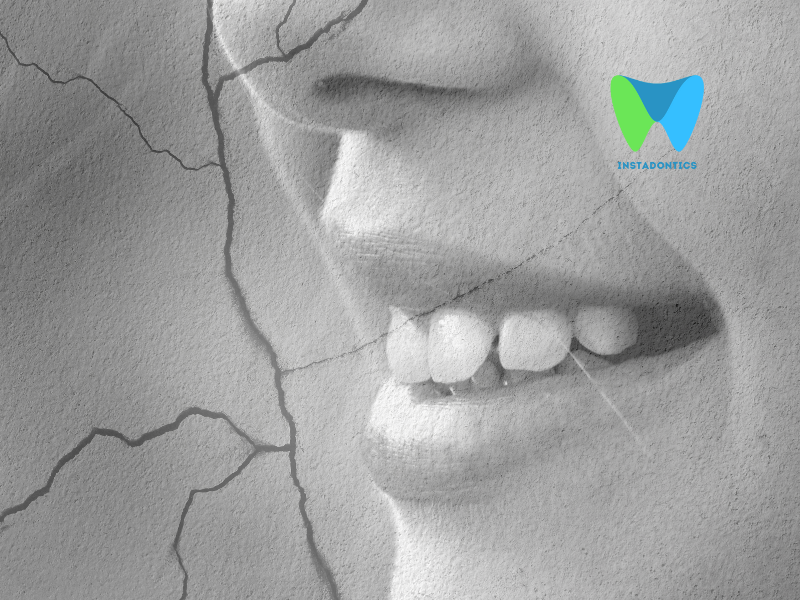Tooth pain can range from a mild annoyance to a debilitating condition that affects your daily life. Severe tooth pain, in particular, can be excruciating, making it difficult to eat, sleep, or even concentrate. If you’re experiencing severe tooth pain, it’s crucial to understand the underlying causes, immediate relief options, and long-term solutions to prevent future discomfort. This blog post will provide you with a comprehensive guide to managing and alleviating severe tooth pain, offering practical tips, home remedies, and professional advice to help you outrank competing blog posts on this topic.
Understanding Severe Tooth Pain: Causes and Symptoms
Before diving into relief options, it’s essential to understand what causes severe tooth pain and how to recognize the symptoms. Tooth pain can stem from various dental issues, some of which may require immediate attention from a dentist.
Common Causes of Severe Tooth Pain
- Tooth Decay (Cavities): One of the most common causes of tooth pain is tooth decay. When bacteria in your mouth produce acids that erode the tooth enamel, it can lead to cavities. If left untreated, the decay can reach the inner layers of the tooth, causing severe pain.
- Dental Abscess: A dental abscess is a pocket of pus that forms due to a bacterial infection. It can occur at the root of the tooth or in the gums, leading to intense, throbbing pain. An abscess is a serious condition that requires prompt dental treatment.
- Gum Disease: Periodontal (gum) disease can cause inflammation and infection in the gums, leading to tooth pain. Advanced gum disease can result in tooth loss if not treated.
- Tooth Fracture: A cracked or broken tooth can expose the sensitive inner layers, causing severe pain, especially when chewing or exposed to hot or cold temperatures.
- Impacted Wisdom Teeth: Wisdom teeth that don’t have enough room to emerge properly can become impacted, leading to pain, swelling, and infection.
- Sinus Infection: Sometimes, severe tooth pain can be a symptom of a sinus infection, especially if the pain is concentrated in the upper teeth.
- Temporomandibular Joint (TMJ) Disorder: TMJ disorders can cause pain in the jaw, which may radiate to the teeth, leading to discomfort.
Symptoms of Severe Tooth Pain
- Sharp, Throbbing, or Constant Pain: Severe tooth pain is often described as sharp, throbbing, or constant. It may be localized to one tooth or radiate to the jaw, ear, or head.
- Sensitivity to Hot or Cold: If your tooth pain is triggered by hot or cold foods and beverages, it could indicate tooth decay, a cracked tooth, or exposed dentin.
- Swelling: Swelling in the gums or face may accompany severe tooth pain, especially if an infection is present.
- Fever: A fever along with tooth pain could indicate an infection that requires immediate medical attention.
- Bad Taste or Odor: A bad taste in your mouth or foul odor could be a sign of an abscess or infection.
Immediate Relief for Severe Tooth Pain
When severe tooth pain strikes, you need immediate relief. While it’s essential to see a dentist as soon as possible, there are several steps you can take at home to alleviate the pain temporarily.
1. Over-the-Counter Pain Relievers
Non-prescription pain relievers like ibuprofen (Advil) or acetaminophen (Tylenol) can help reduce inflammation and alleviate tooth pain. Always follow the recommended dosage and consult with a healthcare professional if you have any underlying health conditions.
2. Cold Compress
Applying a cold compress to the outside of your cheek near the painful area can help reduce swelling and numb the pain. Use a cold pack or wrap ice in a cloth and apply it for 15-20 minutes at a time.
3. Saltwater Rinse
A saltwater rinse can help reduce inflammation and kill bacteria in the mouth. Mix 1/2 teaspoon of salt in 8 ounces of warm water and swish it around your mouth for 30 seconds before spitting it out. Repeat this several times a day.
4. Clove Oil
Clove oil has natural analgesic and antibacterial properties, making it an effective remedy for tooth pain. Soak a cotton ball in clove oil and apply it directly to the affected tooth. Alternatively, you can mix a few drops of clove oil with a carrier oil (like coconut oil) and apply it to the painful area.
5. Garlic
Garlic has antimicrobial properties that can help fight infection and reduce pain. Crush a garlic clove to release its juices, apply it to the affected tooth, and leave it on for a few minutes before rinsing your mouth.
6. Peppermint Tea Bags
Peppermint has a cooling effect that can help soothe tooth pain. Steep a peppermint tea bag in hot water, let it cool, and then place it on the affected tooth. You can also freeze the tea bag and apply it cold for added relief.
7. Hydrogen Peroxide Rinse
A hydrogen peroxide rinse can help reduce bacteria and relieve pain. Mix equal parts of 3% hydrogen peroxide with water and swish it around your mouth for 30 seconds before spitting it out. Do not swallow the solution.
8. Elevate Your Head
If your tooth pain is worse at night, try elevating your head with an extra pillow. This can help reduce blood flow to the affected area and alleviate pain.
When to See a Dentist
While home remedies can provide temporary relief, severe tooth pain often indicates an underlying issue that requires professional treatment. It’s essential to see a dentist if you experience any of the following:
- Persistent Pain: If your tooth pain lasts more than 1-2 days, it’s time to see a dentist.
- Swelling: Swelling in the gums, face, or jaw could indicate an infection that needs immediate attention.
- Fever: A fever along with tooth pain could be a sign of a systemic infection.
- Difficulty Swallowing or Breathing: If you have difficulty swallowing or breathing, seek emergency medical care immediately.
- Trauma: If your tooth pain is the result of an injury or trauma, see a dentist as soon as possible.
Long-Term Solutions for Severe Tooth Pain
Once you’ve addressed the immediate pain, it’s crucial to focus on long-term solutions to prevent future tooth pain. Here are some steps you can take to maintain good oral health and avoid dental issues:
1. Regular Dental Check-Ups
Visiting your dentist regularly for check-ups and cleanings is one of the best ways to prevent tooth pain. Your dentist can identify and treat issues like cavities, gum disease, and infections before they become severe.
2. Good Oral Hygiene
Brushing your teeth twice a day with fluoride toothpaste and flossing daily can help prevent tooth decay and gum disease. Consider using an antimicrobial mouthwash to reduce bacteria in your mouth.
3. Healthy Diet
A diet rich in fruits, vegetables, lean proteins, and whole grains can support good oral health. Limit sugary and acidic foods and beverages, as they can contribute to tooth decay.
4. Stay Hydrated
Drinking plenty of water helps wash away food particles and bacteria, reducing the risk of tooth decay and gum disease. Water also helps maintain saliva production, which is essential for oral health.
5. Avoid Tobacco Products
Smoking and using tobacco products can increase your risk of gum disease, tooth decay, and oral cancer. Quitting tobacco can significantly improve your oral health.
6. Wear a Mouthguard
If you grind your teeth at night or play contact sports, wearing a mouthguard can help protect your teeth from damage and prevent tooth pain.
7. Address Dental Issues Promptly
If you notice any signs of dental problems, such as tooth sensitivity, bleeding gums, or pain, don’t wait to see a dentist. Early intervention can prevent more severe issues down the line.
Professional Treatments for Severe Tooth Pain
Depending on the cause of your severe tooth pain, your dentist may recommend one or more of the following treatments:
1. Fillings
If your tooth pain is caused by a cavity, your dentist may recommend a filling to restore the tooth and prevent further decay.
2. Root Canal Therapy
A root canal is necessary when the pulp inside the tooth becomes infected or inflamed. During the procedure, the dentist removes the infected pulp, cleans the root canal, and seals it to prevent further infection.
3. Tooth Extraction
In cases where the tooth is severely damaged or infected and cannot be saved, your dentist may recommend extracting the tooth. After extraction, you may need a dental implant, bridge, or denture to replace the missing tooth.
4. Antibiotics
If your tooth pain is caused by an infection, your dentist may prescribe antibiotics to eliminate the bacteria and prevent the infection from spreading.
5. Gum Disease Treatment
If gum disease is the cause of your tooth pain, your dentist may recommend scaling and root planing to remove plaque and tartar from below the gumline. In severe cases, surgical treatment may be necessary.
6. Dental Crowns
A dental crown may be recommended if your tooth is cracked, broken, or severely decayed. A crown covers the entire tooth, providing protection and restoring its function.
7. Orthodontic Treatment
If your tooth pain is caused by misaligned teeth or an improper bite, orthodontic treatment (such as braces or clear aligners) may be necessary to correct the issue.
Preventing Severe Tooth Pain: Tips for Maintaining Oral Health
Prevention is always better than cure when it comes to tooth pain. Here are some additional tips to help you maintain good oral health and prevent severe tooth pain:
1. Brush Properly
Brush your teeth for at least two minutes twice a day, using a soft-bristled toothbrush and fluoride toothpaste. Be sure to brush all surfaces of your teeth, including the front, back, and chewing surfaces.
2. Floss Daily
Flossing removes plaque and food particles from between your teeth and under the gumline, where your toothbrush can’t reach. Make flossing a part of your daily routine.
3. Use Mouthwash
An antimicrobial mouthwash can help reduce bacteria in your mouth and prevent gum disease. Look for a mouthwash that contains fluoride to strengthen your teeth.
4. Limit Sugary and Acidic Foods
Sugary and acidic foods can erode tooth enamel and lead to cavities. Limit your intake of these foods and rinse your mouth with water after consuming them.
5. Chew Sugar-Free Gum
Chewing sugar-free gum after meals can help stimulate saliva production, which neutralizes acids and washes away food particles.
6. Replace Your Toothbrush Regularly
Replace your toothbrush every three to four months, or sooner if the bristles are frayed. A worn-out toothbrush is less effective at cleaning your teeth.
7. Stay Informed
Stay informed about the latest advancements in dental care and oral health. The more you know, the better equipped you’ll be to take care of your teeth and prevent tooth pain.
Severe tooth pain can be a distressing experience, but with the right knowledge and tools, you can manage and alleviate the discomfort. From understanding the causes and symptoms to exploring immediate relief options and long-term solutions, this comprehensive guide has covered everything you need to know about severe tooth pain relief. Remember, while home remedies can provide temporary relief, it’s essential to see a dentist for a proper diagnosis and treatment. By maintaining good oral hygiene, eating a healthy diet, and visiting your dentist regularly, you can prevent severe tooth pain and enjoy a healthy, pain-free smile.



